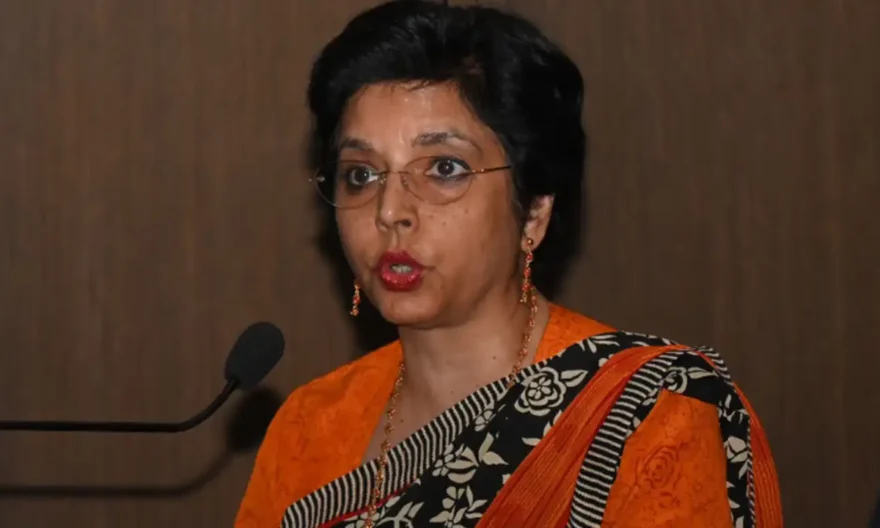
Justice Hima Kohli of the Supreme Court recently underlined the unique hurdles that women experience in securing and protecting their intellectual property rights (IPRs) in India.
The Supreme Court judge was speaking at the Delhi High Court recently during World Intellectual Property Day celebrations.
According to Justice Kohli, these issues are the result of gender bias, job discrimination, a lack of awareness and education about intellectual property rights, and limited access to legal resources and support.
She further added that many women encounter challenges in securing and protecting their intellectual property rights because of cultural, linguistic, and geographical barriers to getting legal aid, which limits their participation.
Chief Justice Satish Chandra Sharma of the Delhi High Court and Union Minister Piyush Goyal also attended the event.
In her speech, Justice Kohli highlighted the importance of fostering an environment conducive to research and development, as well as proper safeguards for inventors, authors, and creators.
She also proposed that compiling and disseminating gender-specific data on women’s participation in innovation and IP should assist policymakers in developing more targeted policies for women.
Despite these challenges, Justice Kohli stated that there is hope for a brighter future because, despite a lack of education and awareness about IPR, there are now more opportunities for women empowerment than ever before.
She stated that women are being educated about various forms of intellectual property protection through efforts such as workshops, seminars, and mentoring programmes. She added that having this information will allow people to take control of their ideas and discoveries.
She also stated that addressing misconceptions and gender biases in IP is vital to achieving gender equality and ensuring that women creators have an equal opportunity to succeed.
To achieve this, Justice Kohli highlighted the importance of changing societal norms that limit women’s participation in the workforce, addressing prejudices in the legal system, and providing women creators with access to tools and assistance.
She further added that the industry must rise to offer chances for women to enter and grow in STEM professions, as well as to ensuring that women creators have access to the resources to succeed.
Women industry leaders including judges, scientists, and businesswomen, spoke about the problems and the path forward at the event.
Justice Prathiba M Singh of the Delhi High Court delivered a report on the ‘One Year of the IP Division’ at the event.
She praised the division’s creation to the Delhi High Court’s leadership, the forward-thinking justices who presided over the IP Division, and the court’s registry.
“We can only achieve our goals by working hard and being dedicated,” she stated.
Suchitra Ella, CoFounder & MD of covaxin-maker BharatBiotech and one of the women facilitated, discussed her journey. She stressed that patenting and intellectual property have provided a lot of credit to innovators.
She also believes that the scientific temperament exists in young people and that all they need is the environment.
“When Covid-19 struck, we were grappling with what we needed to do as an organisation for the first month. We weren’t waiting for another vaccine or a different country to come and save us from this pandemic,” she explained.
Nandini Harinath, a rocket scientist at the Indian Space Research Organisation, was also honoured at the programme. She stated that at ISRO, it makes no difference whether one is a man or a woman; what counts is how much one delivers.
“I must say, I consider myself extremely fortunate to have been a part of the Mars mission,” she stated.
Debjani Ghosh, President of the National Association of Software and Service Companies (NASSCOM), also addressed the gathering and shared some encouraging news about the Indian IP landscape.
“Until now, the majority of our patents have been used outside of India. Today, nearly 45 percent are used in the domestic market. So, things are moving in the correct direction,” she said.




